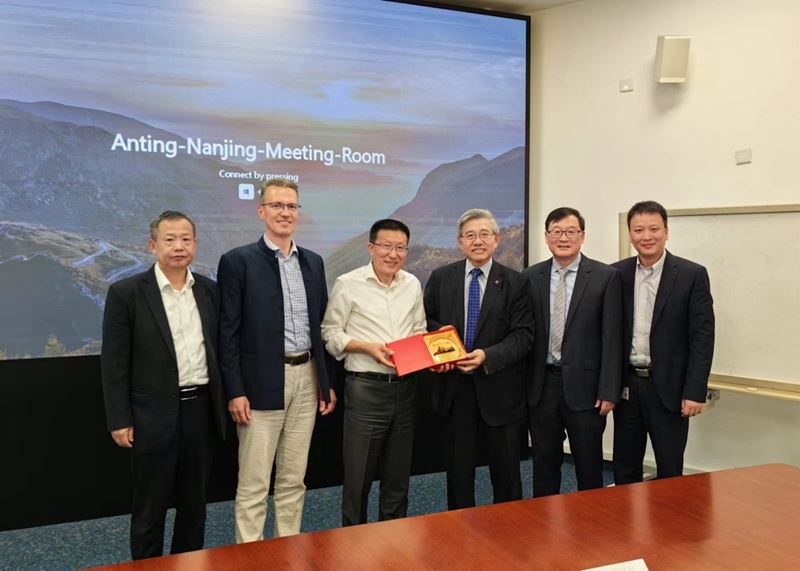Hong Kong, one of the “Four Asian Dragons”, enjoyed spectacular economic success brought by fast growth in trade and manufacturing about half a century ago. The “Made in Hong Kong” tag was a top-quality label that inspired strong consumer confidence. The city, now a premier international financial centre, is injecting new energy into its economy with re-industralisation initiatives to grow high-end, high-value-added manufacturing. At the same time, the Nation’s share of global manufacturing is facing rising industrial tensions, as companies move their production to other countries.
PolyU manufacturing and technology expert Ir Prof. Hau-chung MAN—Cheng Yick-chi Chair Professor in Manufacturing Engineering, Chair Professor of Materials Engineering, Dean of the Faculty of Engineering, Director of the Research Institute for Advanced Manufacturing, and Director of the University Research Facility in 3D Printing—and his colleagues are returning the sector to its heyday and driving the field forward with interdisciplinary research, breakthrough technologies, and cross-sectoral and overseas collaborations.
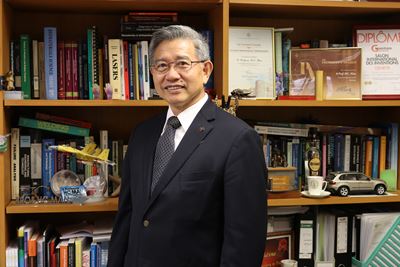
Harnessing interdisciplinarity in advanced manufacturing
PolyU has a long tradition of offering a world-class engineering education and industry solution packages that support the manufacturing sector. The Research Institute for Advanced Manufacturing (RIAM) was established by the University in May 2021 as an interdisciplinary endeavour to transform, enhance and upgrade the manufacturing industry.
“The Institute conducts research and knowledge transfer in the field of advanced manufacturing,” said Prof. Man. “In particular, we support international high-value-added manufacturing by bringing together research and development across various technology readiness levels and by delivering solution packages to the industry.” The Institute conducts different types of studies, encompassing basic principles, technology concepts, and experimental proofs.
Manufacturing engineering and related technologies are important for a wide variety of industries. The diverse team composition enables RIAM to conduct interdisciplinary research that spans multiple fields. “Our principal investigators come from various departments in the faculties of engineering, construction and environment, and science. RIAM members have different specialities, and we work together as a team in a range of areas, such as aviation and aerospace, new materials, artificial intelligence, new energy, biomedical technology and communication networks,” said Prof. Man.
Currently, the Institute brings together 46 principal investigators and co-investigators as well as more than 60 postdoctoral researchers, students and project staff. RIAM focuses on five research areas—Advanced Processing and Materials Technologies; Carbon-Neutral Manufacturing; Digital Manufacturing; Manufacturing Systems and Instrumentation; and Manufacturing Operations and Logistics—under which researchers from different departments and disciplines work together on new inventions and technologies.
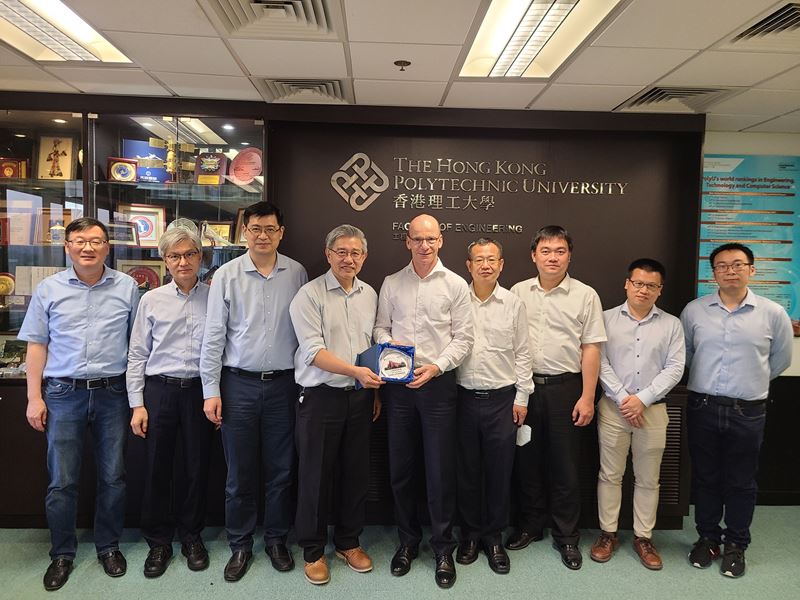
Manufacturing a blessing or curse? Promoting manufacturing with greater effectiveness and eco-friendliness
The manufacturing industry is probably one of the most important determinants of a nation’s strength and wealth across the globe. At the same time, scientists and environmentalists are pointing fingers at industrialisation and manufacturing activities for causing pollution and global warming and depleting natural resources.
Sustainable manufacturing (also known as green manufacturing) is an emerging trend in the sector. Industry and manufacturing experts are now finding ways to do business and produce goods that minimise negative environmental impacts and conserve energy. RIAM is likewise striving for sustainability. The Institute provides seed funding to its members for interdisciplinary initiatives that may expand into larger projects with wider impact. Carbon-neutral manufacturing is one of the Institute’s strategic foci.
Making carbon-neutral manufacturing possible and building sustainability into operations are both technically complex. They require mature technologies and reengineered processes that reduce carbon emissions. First, however, the industry requires an accurate understanding of the carbon emissions involved in manufacturing and production processes. Carbon accounting, a method of measuring and tracking the greenhouse gases emitted by an organisation, is important.
“In one project, our member Dr REN Jingzheng, Associate Professor in the Department of Industrial and Systems Engineering (ISE), is developing an optimisation model on carbon footprint accounting for the manufacturing sector. Dr Ren will develop a calculation model that clearly articulates the mechanisms of carbon emissions from manufacturing processes. He will also identify specific technologies for achieving carbon neutrality in manufacturing, and propose a new optimisation model that considers both manufacturing costs and carbon emissions,” explained Prof. Man. In reality, economic and environmental sustainability are two opposing fronts that must be balanced. A model like this can aid the manufacturing sector in choosing optimal production processes that achieve carbon neutrality. Dr Ren has been selected as the only winner of the 2022 Asia-Pacific Economic Cooperation (APEC) Science Prize for Innovation, Research and Education (ASPIRE Prize), in recognition of his scientific contribution and commitment to excellence in “innovation to achieve economic, environmental, and social goals” and Bio-Circular-Green Economy through systems engineering.
“In another project, Dr ZHANG Xiao, Assistant Professor in the Department of Mechanical Engineering (ME), is developing an efficient reactor system that can turn flue gas (i.e., impure exhaust gas emitted from combustion) to pure carbon dioxide. The reactor relies on electrochemical reactions that make this conversion possible without any further purification,” Prof. Man added. The technique is expected to support and enable carbon capture technologies, which extract carbon dioxide directly from the atmosphere and permanently store them deep underground.
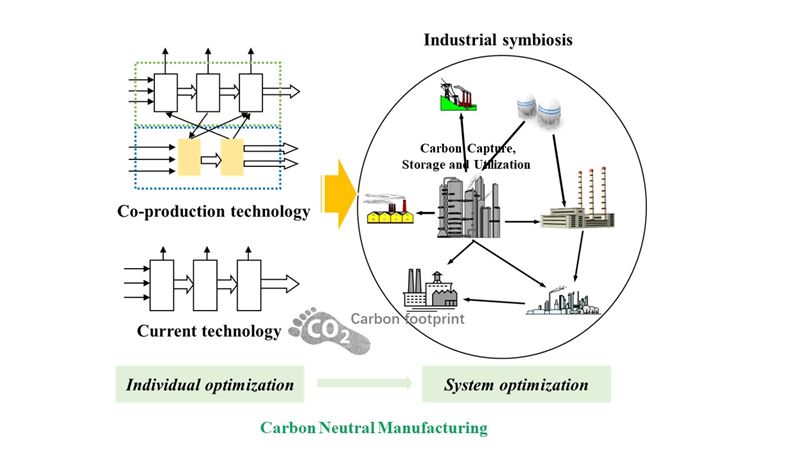
Standardisation: Keystone for advanced manufacturing process
Although additive printing (or 3D printing) is bringing transformational changes to the manufacturing industry, there is still a long journey before it can be used as process to produce reliable products of high quality at a reasonable cost. Laser additive manufacturing of critical metallic engineering components in large quantities is a challenge to researchers in this field. The process involves many variables. Yet, there are still no international standards for metal 3D printing to date.
“For example, the parameters of the metal alloy powders used as raw materials already present many headaches!” Prof. Man said. He shed light on how laser 3D printing can be impacted by a range of factors, highlighting the importance of standardisation in the industry and the development of laser 3D printing as science. “Powder size, composition, purity, fluidity, shape, oxygen/water content and so on are all critical parameters that affect the finished product. Laser beam quality, scan speed, focus size, power, overlapping interval, chamber oxygen content, etc., are a further set of parameters that also affects the product quality. How can we standardise these parameters so that high quality products can be fabricated consistently? How can we increase the processing speed so that the cost can be reduced?”
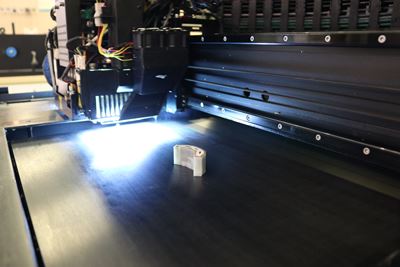
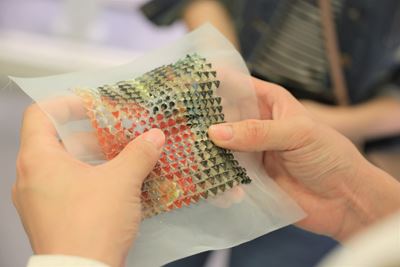
Freshly-made pizzas from a vending machine: Artificial intelligence for smarter food manufacturing
Traditional manufacturing, akin to mass production, involves the effective, large-scale transformation of raw materials into products. Advanced, high-end manufacturing, on the other hand, integrates the use of new-generation technologies like robotics, automation, and the internet of things into manufacturing processes so that they are less land- and labour-intensive. The Institute is currently working on an interesting project: the development of an auto-cooking machine capable of making pizzas. This invention project, AI-assisted Autonomous Cooking Trial Cabinet with Modularised Processing Stations, is led by Prof. CHAN Luen Chow, Research Professor in the ISE Department and Director of the Net-shape Manufacturing Technology Unit, and has been supported by the Innovation and Technology Fund of the Hong Kong SAR government.
“The cabinet integrates a range of kitchen operations in the preparation of pizzas—from mixing, kneading, and fermenting dough, to shaping crusts, dispensing toppings and baking, to packaging. The team has finished building most of the hardware and is now working on the software and programming,” said Prof. Man. The cabinet is a trial project for this new invention. It comprises core components for different cooking modules, a display/touch panel and a pick-up outlet. Thus, the technological deliverable is very similar to a vending machine capable of making customised pizzas. The idea is novel, and the underlying software and programming for various functions are complex.
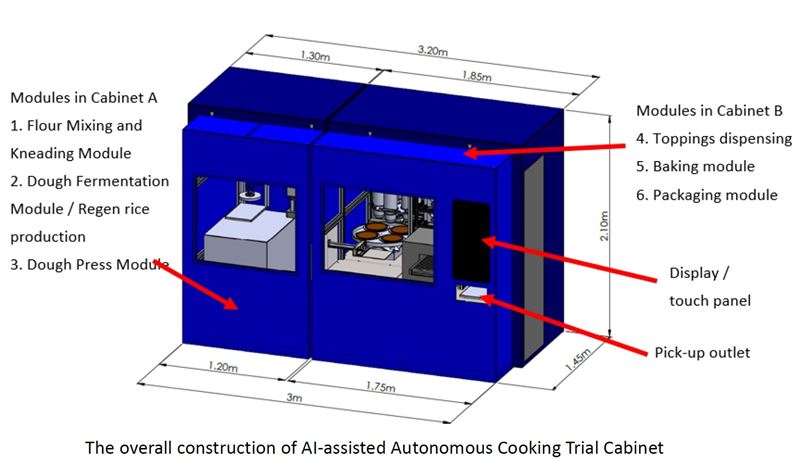
University-industry-government partnerships for ushering in industry 4.0
The fourth industrial revolution refers to the digitalisation of the manufacturing sector towards smart manufacturing, which emphasises automation, interconnectivity, machine learning and real-time data. Manufacturing excellence depends not only on generating sound engineering knowledge, but also on applying it in real-life contexts. A close university-industry-government link is a key to manufacturing success, since it addresses resource and innovation gaps.
“Academia has more resources for research and development of new idea, whereas the industry puts their focus on cost-effectiveness and is less likely to invest in research. With the financial support from our government, academic-industry partnership is an effective way to elevate the technology capacity of manufacturing industry,” Prof. Man explained.
RIAM is working closely with external institutions in Hong Kong, the Greater Bay Area (GBA) and Europe in continuously improving industrial operations. These partnerships include studies on magnesium-based materials and the establishment of new research infrastructure.
“Last year, we started a new partnership with Allite International Limited (AIL). Under this collaboration, we will work on fabricating an advanced 1,000-ton system for the company for making magnesium-alloyed bike tubes and hydroforming (i.e., shaping ductile metals),” said Prof. Man. The team is also working on the bonding of bicycle frames (i.e., producing frames from individual tubes) which are made of Allite Super Magnesium (ASM) alloy.
The GBA and “Made in China 2025” manifestoes have opened up new opportunities to the Hong Kong research and development sector. Prof. Man sees the city of Shenzhen as an ideal place with excellent potential for development into an advanced manufacturing hub. He and other PolyU scholars have been actively building new partnerships with enterprise and governments in mainland China.
“Shenzhen city is like a sponge, absorbing talent from all over the world,” said Prof. Man. Shenzhen, which is situated on the opposite side of the river separating the city from Hong Kong, is one of the targeted regions in Hong Kong’s strategic development of the Northern Metropolis, dubbed “Hong Kong Silicon Valley”. “Shenzhen’s technological development started earlier than other cities in mainland China, and the industries here are already relatively mature and comprehensive. Therefore, newly developed technologies can be transformed into products for applications relatively easily here,” Prof. Man continued.
He and two other RIAM members, Ir Prof. Keith K. C. CHAN, Chair Professor of Manufacturing Engineering and Associate Director of RIAM, and Dr P. C. CHEN, Senior Project Fellow of RIAM, have been discussing with different cities for research collaboration and setting up of research institutes.
Last year, Prof. Man and Prof. Jane YOU, Professor in the Department of Computing contributed to the formation of a collaboration with the city government of Wuxi in Jiangsu province, to jointly set up the PolyU–Wuxi Technology and Innovation Research Institute. The Institute, located in the Wuxi Airport Economic Development Zone, is a complex equipped with multifaceted facilities for teaching, research, professional exchange and start-ups.
From zero to one: Behind the scenes of enhanced advanced manufacturing facilities at PolyU
The year 2023 marks 33 years of service for Prof. Man. He is the founding father of several flagship developments in PolyU research, setting up new initiatives from scratch. When he joined PolyU as a lecturer in 1990, high power laser processing technology was relatively new, and relevant advanced facilities were not accessible or readily available in Hong Kong. The young lecturer founded the Laser Materials Processing Centre in 1995 with government funding support, introducing and popularising high power laser processing technology in the manufacturing industry in Hong Kong and the Pearl River Delta region.
In 2016, together with the colleagues of Industrial Centre, he built up the University Research Facility in 3D Printing (U3DP) which provides a platform for PolyU students and staff to realise their innovative mind to turn a design idea into a physical product in a short span of time. “The U3DP has facilitated many staff and students to receive international awards. Our U3DP has been ranked by a German professional 3D printing magazine to be the 14th best 3D printing research centre among the top 50 3D printing centres in the world,” Prof. Man said.
Prof. Man has kept PolyU manufacturing technologies and engineering management systems at the forefront with his research and inventions. Over the years, he has been awarded HK$16 million from the Innovation and Technology Fund of the Hong Kong SAR government and the General Research Fund of the University Grants Council. The prolific researcher has also obtained 4 patents and published over 200 journal papers, 70 conference papers, and three book chapters. His works have been widely cited and recognised—Prof. Man was named among the 2022 Top 2% Most-cited Scientists (Materials) by Stanford University.
From advancing the field of engineering to enhancing the student learning experience, the ambitious scholar has worn many different hats in leading important university functions. Previously, he served as the Associate Dean of the Faculty of Engineering and Head of the ISE Department. Currently, in addition to his directorship at RIAM, Prof. Man is the Director of Studies of the Integrated Graduate Development Scheme Unit, managing the joint MSc programmes in manufacturing-related disciplines with The Warwick Manufacturing Group of Warwick University, the Dean of the Faculty of Engineering, and the Director of the University Research Facility in 3D Printing.
He has been honoured three times with the PolyU President’s Award for Excellence Performance/Achievement, in Research and Scholarly Activities (1998 and 2006) and in Services (2019)—a clear testimony to the scholar-industrialist’s true, sustained dedication to bringing distinction to the university while serving society.
